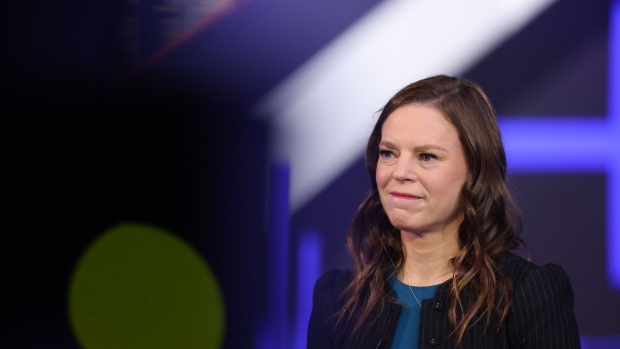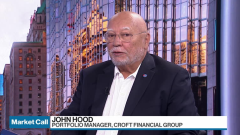Nov 30, 2023
BOE’s Greene Says UK Rates May Be Less Restrictive Than Thought
, Bloomberg News

(Bloomberg) -- Bank of England policy maker Megan Greene said monetary policy may not be having as great an impact on inflation as thought because the natural rates of unemployment and interest rates have risen recently.
In a speech at Leeds Business School, Greene, the newest member of the central bank’s nine-member Monetary Policy Committee, said rates would need to be “restrictive for an extended period of time” because persistent inflation remains a greater threat than a recession.
“Doing too little might be a greater risk only in that it suggests that inflation might persist for longer, and we could end up having to do even more than to lean against that inflation in the end, which could push the economy into greater slowness,” she said in response to questions after the speech. “I think that’s the worst option.”
The remarks are the latest indication from a BOE official that markets may be too optimistic in anticipating that borrowing costs will fall in the second half of next year. Greene along with Governor Andrew Bailey and other official Jonathan Haskel, Catherine Mann, Dave Ramsden and Huw Pill all have set out a “higher for longer” mantra in the past few weeks.
Greene argued that difficulties employers face in filling jobs means a higher rate of unemployment is needed to bring wage growth under control. At the same time, rising levels of investment are eating into the global savings glut, forcing up the natural rate of interest.
The combination means that “for a given level of interest rates, this would indicate policy is less restrictive than we’d thought,” Greene said. To squeeze inflation out of the economy, both interest rates and unemployment need to be above the natural rates.
“I continue to put my focus on inflation persistence,” Greene said in what was her first speech since joining the MPC. The comments help explain why Greene was in the minority of three who voted to raise rates to 5.5% at this month’s meeting, when the committee held them at 5.25%.
The BOE has recently raised its estimate of the natural rate of unemployment from around 4% to almost 4.5%. But Greene said the level may be even higher due in part to “lower matching efficiency — the effectiveness with which job openings are matched to people seeking work.”
A tight labor market makes it easier for workers to demand catch-up pay rises to rebuild living standards after the cost-of-living crisis. High wage growth remains one of the BOE’s principle inflation fears.
On the natural rate of interest, Greene said business investment has “recently risen above pre-Covid levels, possibly driven by the green transition and automation.” She added: “This may have modestly whittled down the glut of UK savings over investment,” pushing up the natural rate of interest.
She said that the risks to each side of the policy debate are now more finely balanced. That’s left her primarially focusing on inflation and about the persistence of price pressures.
©2023 Bloomberg L.P.






